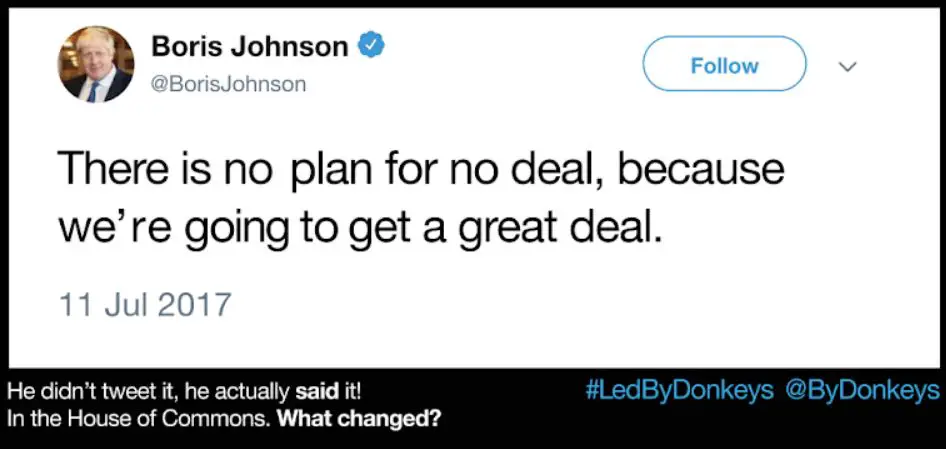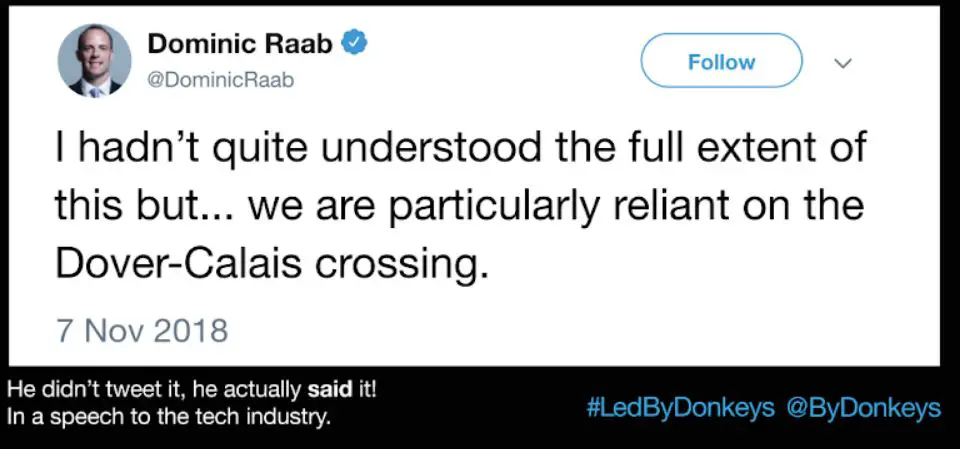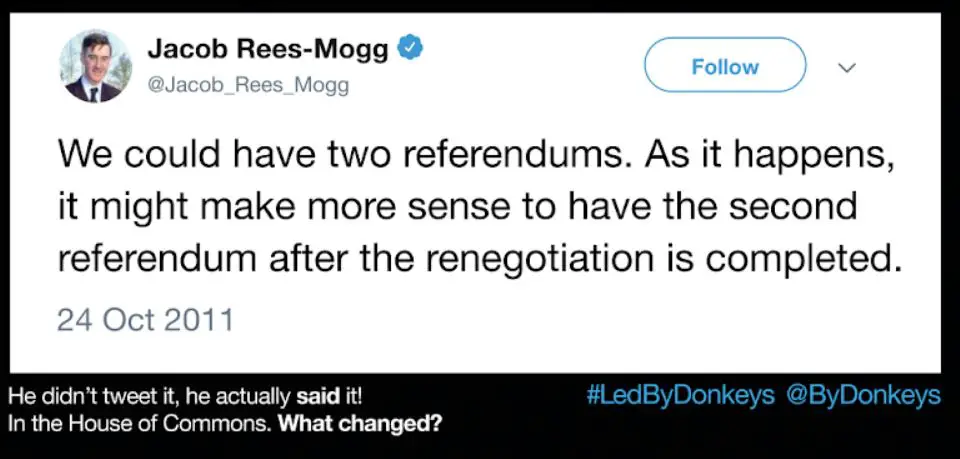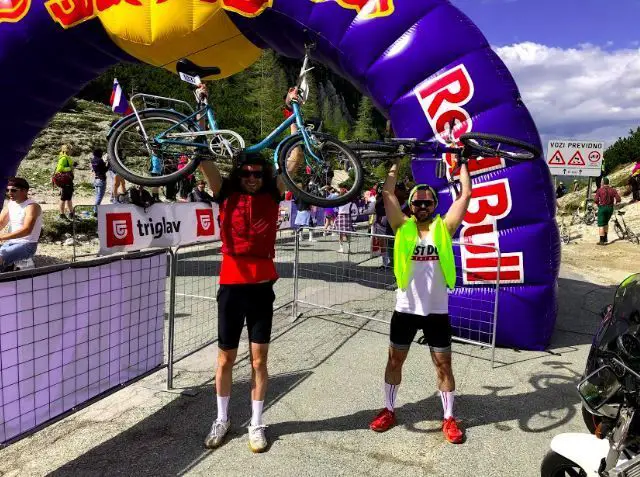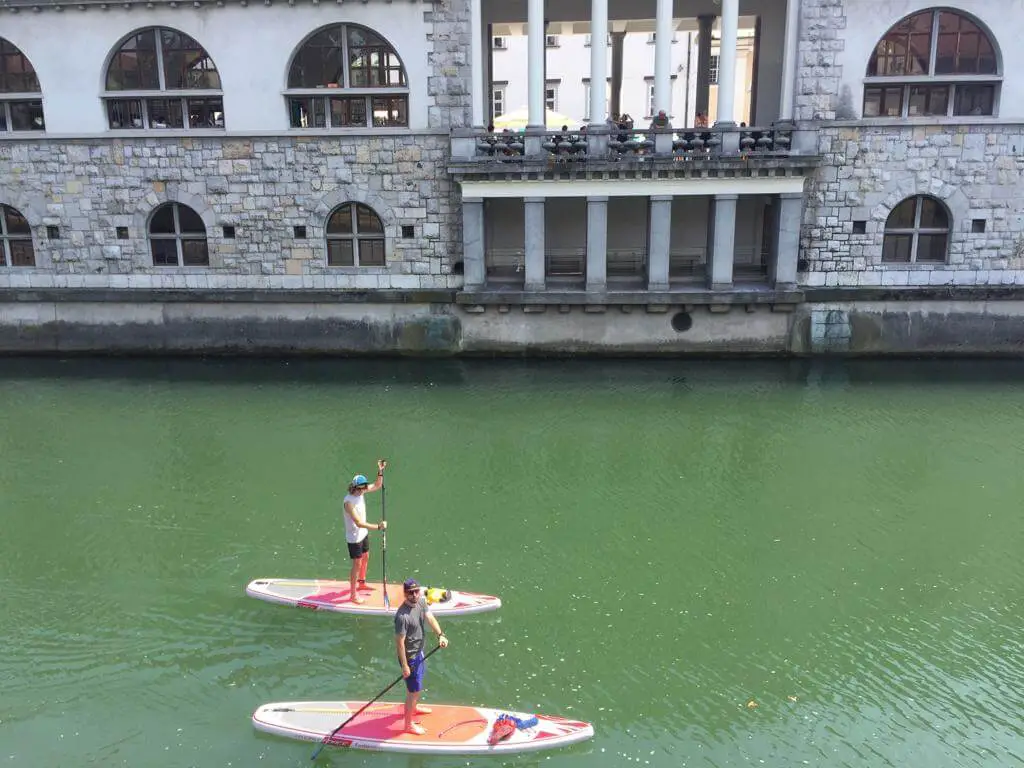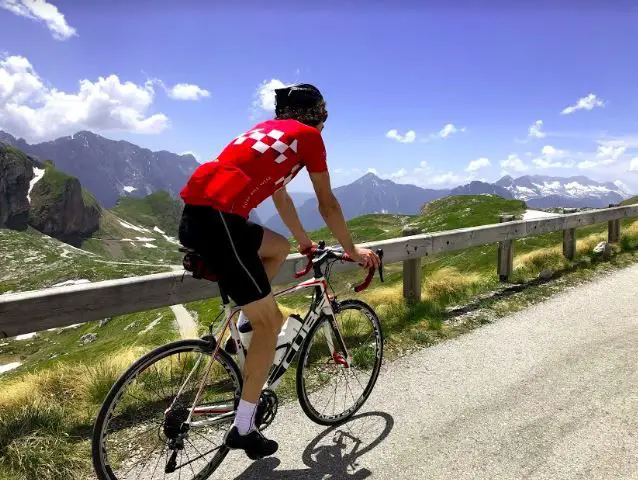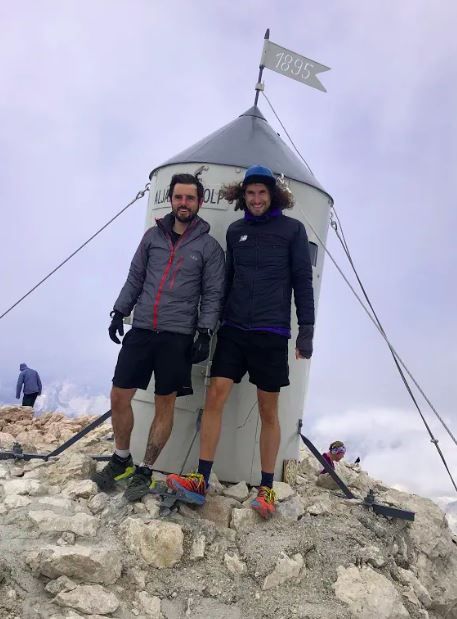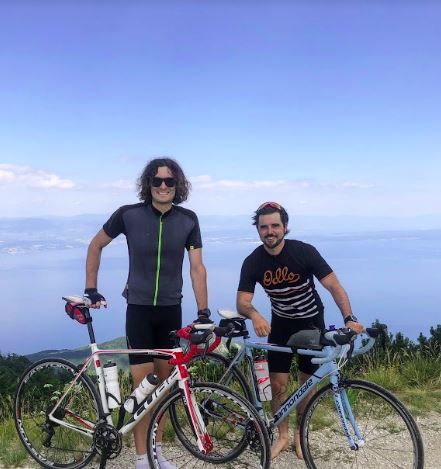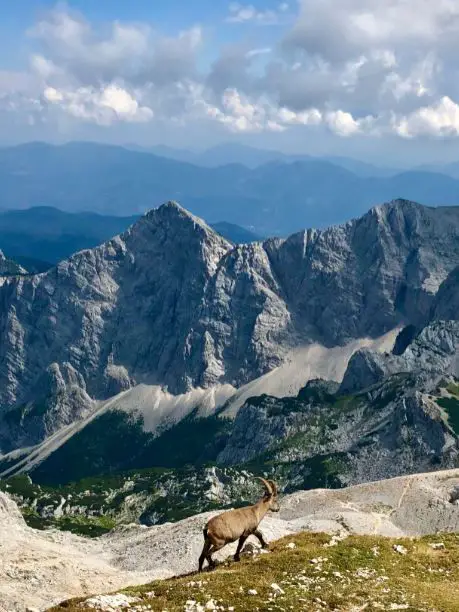Ljubljana related
STA, 29 January 2020 - There are some 800 UK citizens living in Slovenia and their main concern about Brexit is whether they will be able to continue their lives as before, UK Ambassador to Slovenia Sophie Honey told the STA, stressing that their rights were protected under the December EU-UK Withdrawal Agreement.
The agreement protects the rights and status of British citizens in Slovenia but also Slovenians in the UK, the ambassador told the STA in an interview.
The ambassador explained that the embassy has been in regular contact with the British community in Slovenia, updating them on the latest developments, and explaining them what the Withdrawal Agreement means for them. It has also been working very closely with the Slovenian government.
"The Withdrawal Agreement protects the rights of all those who are legally resident in Slovenia by the end of December to continue to live and work in Slovenia as they do now. So it protects their residency status, but also their rights to access healthcare and social security, to access their pensions as previously."
To be eligible, UK nationals have to be legally resident in Slovenia, whether as temporary or permanent residents, by the end of 2020.
As for travelling, holiday, and business visits, the ambassador said everything would remain the same after the implementation period, in 2021. "It is already agreed that there will be visa free travel for short visits."
Arrangements for British people coming to live permanently in Slovenia after 2020 and vice-versa, are yet to be decided. But the ambassador believes "the UK will always want to welcome talented individuals, so there will still be significant flow of people. For instance this week the UK launched a new visa scheme specifically for people in science and research."
During the transition period, the UK and EU will negotiate the new relationship, including new arrangements that will apply in areas like trade.
"The transition period means that there would be limited impact for businesses and people who are travelling during 2020. That means that current EU rules apply. That gives us the opportunity to agree the new partnership between the UK and the EU that will start on 1 January next year.
"There we are looking for a really positive and constructive partnership given our shared interest, our shared history, and values. So we are looking for a broad free trade agreement covering goods and services, but our prime minister has also spoken of the need to work as partners in other areas, for instance to tackle climate change, and to build cooperation in education and science," Honey said.
David Limon, a retired professor from the Faculty of Arts, applied for Slovenian citizenship in March 2019 but it looks like his application may be rejected due to what he thinks is a technicality, relating to his income as a self-employed translator since leaving the faculty.
He has been living in Slovenia since 1998 but his connections with Slovenia go back to 1983 when he married a Slovenian. Both his wife and their daughter, who was born in the UK but educated in Slovenia, have dual citizenship.
"It is clear that the Interior Ministry applies very strict (even unfair) criteria for citizenship applications. I am very disappointed about this after contributing for over 20 years to Slovenian society (as an academic and a translator), learning the language and even climbing Triglav."
He expects travel within the EU to get more complicated for British passport holders after Brexit. "It is also possible that if the British government makes life more difficult for EU citizens, reducing their legal rights, then EU countries will understandably reciprocate," he told the STA.
Chris Wherry, English programme moderator at Radio Slovenia International, is a permanent resident and this will not change regardless of the relationship between the UK and the EU.
He came to Slovenia in 2002 and is married to a Slovenian. Both of their two children, 15 and 11, are registered British citizens so they will be able to choose where they wish to live after their education.
Asked about any concerns regarding Brexit, he said there were many. "I believe the UK has much to lose by operating alone. I further treasure the EU free movement of people as a way of allowing individuals to access the best education and personal opportunities.
"Cooperation between countries is vital to resolve many international issues and trading as a more powerful block makes real sense. Both the EU and the UK will be weaker unless they come to significant agreements over the next 11 months regarding these issues."
Paul Steed, editor and writer for Total Slovenia News, has been in Slovenia for five and a half years, moving here from Taiwan. He has permanent resident status, is married to a Slovenian, has a child and owns property here, so he plans to stay after Brexit. He would like to get dual nationality, to "further confirm my status in Slovenia, but this is complicated because of Brexit".
"My concerns regarding Brexit are wide and varied. But on a personal level I'm worried about dual nationality, and pensions and healthcare in the future," he told the STA.
With regard to Slovenia, he noted that the direct trade links with the UK were very small, and would get smaller in the future. "The increased barriers to trade, if only in terms of rules of origin paperwork in a tariff- and quota-free deal, will make things more difficult, especially for smaller firms."
On the positive side, Slovenia has strong automotive and pharmaceutical industries, two areas that will be hurt in the UK if London does not opt for close regulatory alignment with the EU, so the country could maybe benefit there, he said.
There are many partnerships between British and Slovene businesses, including in high-tech, the pharmaceutical industry and the automotive sector, and around 4500 Slovenian companies importing goods and services from the UK. According to Ambassador Honey, she is not aware of any British company thinking about leaving Slovenia because of Brexit.
"We have a really strong and growing bilateral partnership with Slovenia", the ambassador told the STA, highlighting growing trade and education ties, and the first Slovenia-UK Friendship Day in 2019. "So I want to see all of those trends continue, as we continue to build a new and positive relationship between the UK and EU as a whole."
STA, 28 January 2020 - Roughly half of some 5,000 Slovenians living in the UK have applied for settled or pre-settled status so far ahead of Brexit, according to the British Home Office. Slovenian Ambassador to the UK Tadej Rupel expects the number of Slovenians in the UK to "drop somewhat, but not drastically".
Most of the Slovenians that have already applied for the post-Brexit status have opted for the settled status.
EU citizens that have been living and working in the UK for less than five years can apply for the pre-settled status, while those who have been in the UK for more than five years can apply to stay in the country under the settled status scheme.
Some Slovenians have acquired British citizenship and are thus not obligated to enter into any of the two schemes, Rupel told the STA. On the other hand, some have left the UK due to Brexit-related reasons.
The deadline for applying is 31 December 2020, however there have been political and public assurances that EU citizens will not be automatically deported if they fail to apply for the status by the deadline, said the ambassador, adding that settled and pre-settled status applications were mostly granted.
The UK is interested in keeping EU citizens who work and contribute to its economy, he added.
Slovenians in the UK are "well-organised and keeping track of the Brexit-related circumstances", Rupel said, adding that they did not seem to be panicking.
There are some doubts and questions remaining in terms of marriage registration, getting citizenship, the validity of IDs and options for crossing the border.
The Slovenian embassy has regular contacts with the British authorities and informs Slovenian citizens living in the UK of their replies. Last year, it also held a couple of events with British legal experts, informing the public about the situation.
Moreover, the embassy's social media is another platform to provide relevant information, however Rupel expressed concern that the elderly and other vulnerable groups would find it more difficult to access the information.
He explained that everyone who would move to the UK until the end of this year would be entitled to the pre-settled status scheme, while next year a new immigration mechanism would probably enter into force.
No immediate drastic changes will follow the latest Brexit deadline, 31 January, said Rupel, with a transition period taking place.
Some 5,000 Slovenians live in the UK, according to the embassy's data, most of them (85-90%) in the south-east of the country or the London area. They work in the City or at universities, study there, some of them are artists, doctors and entrepreneurs. A small part of them came to the UK in the mid-20th century.
Janja Hadalin, a 35-year-old Slovenian working for an NGO helping the disabled on the outskirts of London, has been living in the UK for almost four years. Even though she is content there, Hadalin does not plan to apply under the pre-settled status scheme since she would like to return to Slovenia.
According to her, most Slovenians living in the UK she knows are planning to stay. Signing up to the scheme is not difficult, she added.
Meanwhile Lana Mak, a 26-year-old working as purchasing officer and living in Bedford near London, plans to stay since she has settled in the UK and started a family there. She sees no difference between living in Slovenia or the UK. "When you settle somewhere, you get used to it," she said.
She and her partner have not yet applied for the settled status, but expect to get it since they have been living in the country for more than five years. Mak has not noticed any Brexit-related changes in day-to-day life.
Žan Florjanič Baronič, a 20-year-old studying medicine at UCL in London, has already applied for the status. He does not know any foreigner living in the UK who has not yet taken care of that - there was even a "mild hysteria" regarding that last summer, he added.
Florjanič Baronič estimated that Brexit would affect UK science funding in the long-term, which might bear on his career as well since major UCL research projects have been mainly EU-funded.
Moreover, following Brexit, EU citizens could pay international tuition fees to study in the UK, which might deter them from enrolling in UK universities, said Rupel.
Currently, there are between 500 and 700 Slovenian students studying in the UK.
All our stories on Brexit and Slovenia are here
All of Total Slovenia's stories on Brexit can be found here
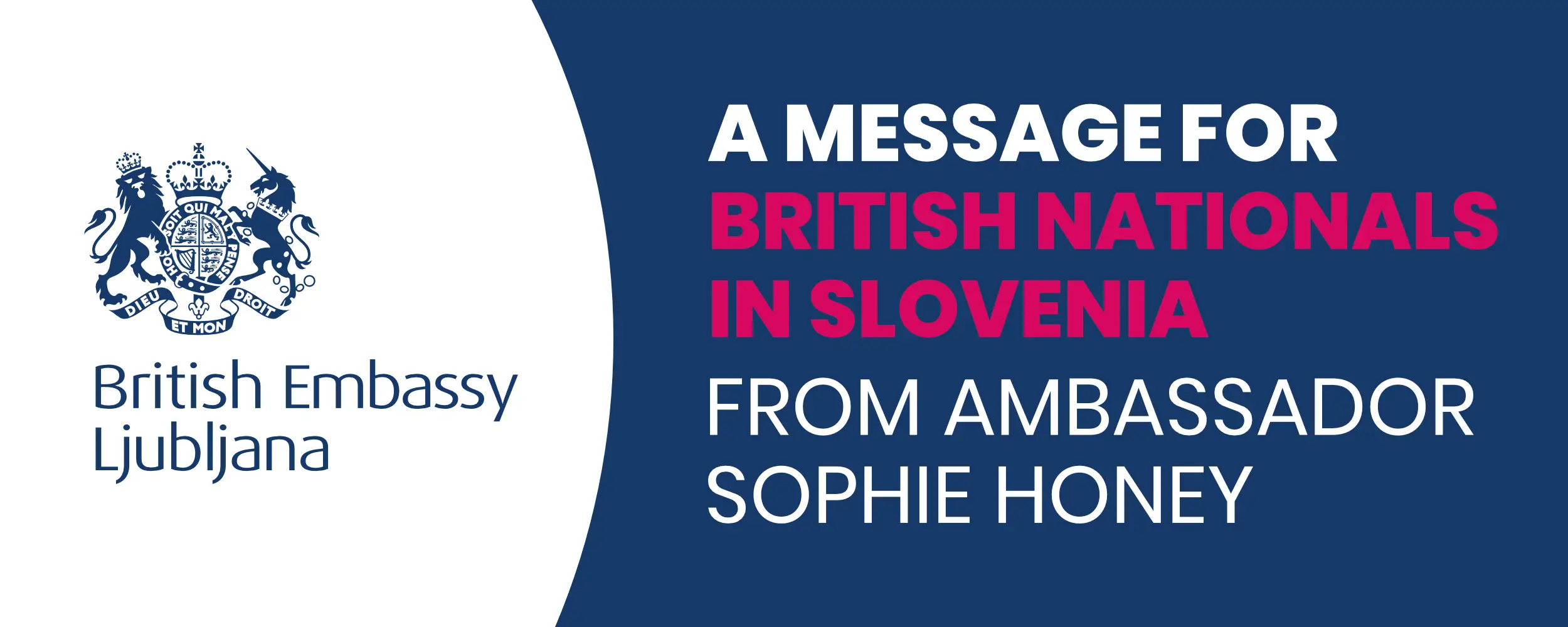
Dear All,
I am sure that you will have seen the result of last week’s General Election in the UK, which returned Boris Johnson as Prime Minister with a substantial majority in Parliament. The Prime Minister has made clear that the Government’s first priority is to leave the EU on the 31st January, on the basis of the Withdrawal Agreement negotiated with the EU, and then conclude negotiations on a free trade agreement and security partnership by the end of 2020.
After the UK leaves the EU there will be an implementation period lasting until the end of 2020. During this period, arrangements will remain broadly the same while the UK and EU agree a future trade and security relationship. This will include, among other things, future immigration and work provisions for British nationals who come to live and work in Slovenia after 2020. This will not affect your status, which is guaranteed by the Withdrawal Agreement.
You might be wondering what this means for you. In short, if you have temporary or permanent residence in Slovenia, you will continue to be able to live and work in Slovenia as now. Your rights will be guaranteed by the Withdrawal Agreement concluded with the EU. The only action you may need to take is to ensure that you are legally resident in Slovenia before 31 December 2020, if you have not already done so. More information about how to do this is on our Living in Slovenia Guide.
I recognise that while there is clarity on the UK Government’s approach post-election, some of you may still be feeling uncertain about your status and what happens next. I will be hosting an event for UK nationals in the course of January to answer any questions you may have. Please check our Facebook page for further details. Please keep following us on Facebook and Twitter for the latest updates and send any questions to our website or call us on (01) 200 39 10.
For now, I wish you all a very Merry Christmas and Happy New Year. I look forward to seeing as many of you as possible during the course of next year.
Sophie Honey
British Ambassador to Slovenia
STA, 17 October 2019 - Slovenian Prime Minister Marjan Šarec welcomed the deal on an orderly Brexit reached on Thursday by the EU and British negotiators and expressed hope that the deal will get support in the UK, as "time is really running out".
Šarec said he was happy with the deal as he spoke to the press on the sidelines of the two-day European Council meeting, which also discusses relations with Turkey, EU long-term budget and priorities for the next five years.
Related - The British Embassy answered your questions on Brexit
Asked whether Brexit would happen on 31 October, Šarec said that the EU leaders would first need to get acquainted with the report from the EU's chief negotiator Michel Barnier and to see what the sentiment was.
The Slovenian prime minister hopes that "this agreement, which is certainly a better result than no deal at all," would not be rejected by Britain as it is one of the last, if not the last options.
According to Šarec, everything depends now on the British parliament and the European Parliament, while the EU leaders also need to get acquainted with the deal in the first place.
He personally believes that Barnier has reached a good deal as a good and experienced negotiator.
Šarec was also asked about the media reports on the alleged request by British PM Boris Johnson that the EU leaders exclude the possibility of a new postponement of Brexit and effectively help him push the deal through parliament.
He said that he and his EU counterparts needed to get acquainted with details first and that the opinion of Ireland and the European Commission was important.
Šarec criticised the entire process of looking for a Brexit deal, which he believes does not contribute to the reputation of the EU and the United Kingdom.
"Three years have passed, with more important topics being pushed aside," he lamented, adding that "everybody would like to see a solution. If we are not capable of making this happen, let them stay."
The deal was first announced by European Commission President Jean-Claude Juncker and later presented at a press conference by Barnier, who said that an orderly Brexit could be implemented by the end of the month.
The key difference compared to the agreement with the former British PM Theresa May is the elimination of the disputable Irish backstop, which would be replaced with a new approach.
Prime Minister Johnson has called on the British MPs to back the deal. The British parliament decided today in a narrow vote to hold an extraordinary session on Saturday to discuss the deal.
STA, 10 October - President Borut Pahor expressed solidarity with Ireland in the face of Brexit as he met President Michael D. Higgins ahead of the Athens Democracy Forum on Thursday. Slovenia supports efforts for an orderly Brexit, which is in the interest of the EU and the UK.
The pair talked about the future of the EU and other topical global issues, but special attention was given to Brexit.
Pahor said that Slovenia would only support a deal acceptable to Ireland, this means only a legal solution that would avoid a hard border between Ireland and Northern Ireland, protect the economy of the island and preserve a single market in Ireland.
Predsednik Republike Slovenije Borut Pahor se je danes sestal s predsednikom Irske Michaelom D. Higginsom, s katerim sta se pogovarjala predvsem o prihodnosti Evropske unije in aktualnih razmerah v svetu. https://t.co/yfO3HaKEMf pic.twitter.com/FA79HSZcga
— Borut Pahor (@BorutPahor) October 10, 2019
Pahor also underlined that Slovenia was fully supportive of the approach adopted by the EU and its head negotiator Michel Barnier.
Higgins noted that Irish Taoiseach Leo Varadkar is meeting UK Prime Minister Boris Johnson today to discuss Brexit, Pahor's office said in a press release.
The press release also said that the presidents shared the view that the EU is at a cross roads and that serious reflection is needed about its future.
In this respect Higgins said that he advocated the eco-social economic policy, which he believes can strengthen the EU.
Mr. Borut Pahor, the President of the Republic of Slovenia @BorutPahor tells us: The EU is more than just a project, it is the most beautiful thing that has ever happened to the nations of Europe. It’s the only solution for peace and stability.#ADF2019 #Democracy #EuropeanUnion pic.twitter.com/HUtxgmihu7
— Athens Democracy Forum (@ForumAthens) October 10, 2019
Higgins and Pahor agreed that bilateral relations between their countries were friendly and without open issues. They want to see closer cooperation in the future, with Pahor inviting Higgins to visit Slovenia.
The presidents are guests at the Athens Democracy Forum organised by the New York Times under the auspices of Greek President Prokopis Pavlopoulos. This year, the event focuses on alternative forms of governance.
All our stories on Brexit are here
NOTE: This advice was accurate as of 9 October 2019, but may be subject to changE. For the very latest information you can read the GOV.UK Living in Slovenia Guide (http://bit.ly/2W6cwQb) and sign up for updates (http://bit.ly/LiG-SLO-SignUp); and subscribe to British Embassy in Ljubljana's newsletter: (http://bit.ly/UKNinSLO-News)
The British Embassy recently hosted a Q&A on Brexit on its Facebook page, but this is difficult to search and not much of a permanent record. So with the permission of the Embassy and questions edited to remove personal details, here’s what people asked and what the Embassy replied - scroll down for everything or click on the following headings.
Residency / Work / Doing business
Imports, exports, goods and services
Property / Healthcare / Family / Education
Dual nationality / Driving licences / Wills / Child benefit
The ideal soundtrack for this post - a shining disco symphony for the dark days of BrexitResidency
How will becoming a temporary resident be affected by no deal?
You will still be able to apply for temporary residence, set up a business and buy property as a non-EU national. The criteria for doing this is different for EU and non-EU nationals. If you are planning on staying in Slovenia we advise that you register for temporary residency as soon as possible at a local Upravna Enota (Office for Foreigners) and acquire an EU status 5 year temporary residency permit.
With this permit you will be entitled to remain in Slovenia and have the same rights and benefits as an EU national would with a few exceptions such as onward movement (eg relocating to another EU member state). You can then apply to become a permanent resident in Slovenia after 5 continuous years of residency.
If you apply for residency after Brexit then you can still apply for residency on the basis of an EU national within 6 months from Exit day. You would however only receive a 1 year permit. After 1 year you would need to apply as a third country national and there are different criteria for doing this such as being self-employed, pensioner, family reasons or property.
If Britain drops out of the EU on 31 October, what will be the process for permanent residents to ensure they retain their residency status? If a deal is done then what will be the process and will the transition period be 20 months as per the proposed deal or will it be until December 2020 (13 months)?
If the UK leaves the EU without a deal, your residency status will continue until its current expiry. You will need to exchange your current residence permit for a new one, noting that the UK is no longer part of the EU. You must do this within one year of exit day. The UK government would prefer to leave with a deal and it is working in a determined way to get one. Under the current Withdrawal Agreement the Implementation Period will last until 31 December 2020. If a deal is reached, we will further provide information on the process required in that scenario to maintain legal residence in Slovenia.
I currently have temporary residence in Slovenia. Would there be any advantage in switching this to permanent before Brexit?
Ultimately this is a personal choice, but if you have legally lived in Slovenia for a continuous period of 5 years then you may wish to do obtain a permanent residency document. A permanent residence document can be useful when dealing with the authorities or for administrative formalities. To learn how to register as a permanent resident, please visit our Living in Slovenia Guide (www.gov.uk/living-in-slovenia).
In its page on residency and Brexit the EU refers to “EU long-term resident status”, and states:
"This permit will grant you a permanent status, and allow you to enjoy the same treatment as nationals regarding access to employment, education, and core social benefits. This will also allow you, under certain conditions, to acquire the right to reside in another EU Member State."
Does this still apply under no deal, and where can we learn more about applying for this status in Slovenia?
The 'EU long-term residence permit' is equivalent to the permanent residence permit issued to EU nationals in Slovenia. In the event of a no deal Brexit, Slovenia's parliament has passed legislation to enable UK nationals who are permanent residents in Slovenia to maintain most rights enjoyed by EU citizens. Slovenia's no deal legislation can be found through the link below: http://pisrs.si/Pis.web/pregledPredpisa?id=ZAKO8007#
Work
In the event of no deal, will professional qualifications gained in the UK continue to be recognized in Slovenia, and vice versa?
Both the UK and Slovenia will continue to recognize professional qualifications previously accredited before Brexit. The UK and Slovenia will also evaluate applications made before Brexit under pre-exit rules, even if review takes place after Brexit. In the event of a no deal Brexit, we understand that Slovenia will evaluate UK professional qualifications under the rules it currently applies to third country nationals.
Doing business
How will no deal affect setting up a business in Slovenia?
For setting up a business in Slovenia you may wish to contact the British Slovenian Chamber of Commerce who will be able to provide information about doing this as a non-EU national. For more information on this please visit www.bscc.si or the Slovenian Chamber of Commerce at https://eng.gzs.si/.
Imports, exports, goods and services
Can you tell us what will happen to any goods imported from the UK, in the event of no deal? Will goods, even small orders for UK products be subject to additional taxes and duty?
The EU will apply tariffs to UK goods in case of a no deal exit. Details of these tariffs can be found here https://ec.europa.eu/.../import-and.../import-into-eu/
Under the UK’s proposals for a deal, the UK and Ireland will collect their own customs duties according to their respective customs legislation. The vast majority of consignments will be cleared within seconds by HMRC without any documentation of physical checks needed.
In case the UK leaves without a deal, it will continue in this vain with no border checks at Dover. The EU importer will need to liaise with the UK exporter and the electronic paperwork will need to be completed on the UK side. The UK exporter will need to be registered for an Economic Operators Identity. More details are here https://ec.europa.eu/trade/import-and-export-rules/import-into-eu
Please also see the attached handout for businesses (http://bit.ly/2IkLvUE) which outlines the preparations businesses should be making in case the UK leaves the EU without a deal.
How should service providers to / from the UK prepare for Brexit?
If you are a UK service provider in Slovenia you can continue to provide services in Slovenia until the end of your contract (regardless of how the UK exits the EU). After this time you will become a third country national Service provider and will need to check with the relevant regulatory body on continuation of providing services.
Please visit the Slovene Chamber of Commerce website for more details (https://eng.gzs.si/) and the Slovene government website for further information (https://www.gov.si/en/registries/projects/brexit/). You can also use the This email address is being protected from spambots. You need JavaScript enabled to view it. email if you have specific questions about providing services in Slovenia.
If you are a Slovene Service provider in the UK you will be able to continue to provide services and renew your contracts as a third country national once the UK has exited the EU but additional paperwork may be required. Further information on this can be found on www.gov.uk
Property
Will I still be able to buy property in Slovenia?
Regarding the purchase of property as a non-EU national, UK nationals will still fall under OECD rules on property rights and will therefore be able to acquire property in Slovenia under these rules after Brexit.
If No Deal, what effect is it likely to have on those of us who own a holiday home in Slovenia?
Property rights will not be affected by Brexit. If there is a no deal Brexit, UK nationals will be able to visit the Schengen Area for up to 90 days within a 180 day period. If you want to spend more time in Slovenia, you will need to apply for a visa and/or residence. Slovenia has outlined its residency regulations for a no deal Brexit in its no deal contingency regulation, which can be found below: http://www.pisrs.si/Pis.web/pregledPredpisa?id=ZAKO8007.
The Ministry of Interior are happy to answer questions about no deal Brexit and residency, you may wish to contact the relevant unit at This email address is being protected from spambots. You need JavaScript enabled to view it.
Healthcare
What will happen to the EHIC with or without a deal? Is it true that British expats will no longer be entitled to any healthcare in the UK, in the event of a deal or no deal?
If the UK leaves the EU with a deal, you will be able to continue using your EHIC as you do now for the duration of the Implementation Period.
In the event of a no deal Brexit, the UK is seeking in parallel an EU-wide approach or bilateral arrangements with Member States to transitionally continue the current social security coordination rules, including reciprocal healthcare, in full until the end of December 2020. Current reciprocal healthcare arrangements also include EHIC rights. This will protect the rights of individuals who live in, move to, visit or work in the UK or EU until 31 December 2020.
If an agreement is not reached, UK-issued EHICs will no longer be valid in Slovenia. If you are resident in Slovenia, you should seek healthcare coverage through the Health Insurance Institute of Slovenia (ZZZS). To ensure continuity of cover, the UK Government has committed to continue to pay for state-funded healthcare for UKNs currently in Slovenia, for a period of 6 months while you transfer to ZZZS. (http://bit.ly/2o9KmIk).
After the UK leaves the EU, UK insureds will continue to have the right to free NHS care when temporarily visiting England, Scotland and Wales. They will also be eligible for NHS care if they move permanently back to the UK (including Northern Ireland).
What advice would you give to British pensioners on fixed incomes who are unable to afford additional insurance in Slovenia? Will there be funds available to help repatriate them for NHS treatment, if needed?
It is important people think about their own needs and circumstances and look at their options carefully by checking the Living in Slovenia guide, NHS Slovenia country page and speaking to ZZZS.
After the UK leaves the EU, those who have an S1 form will continue to have the right to free NHS care when temporarily visiting England, Scotland and Wales. They will also be eligible for NHS care if they move permanently back to the UK (including Northern Ireland).
In the first 6 months the UK Government has put in place emergency provisions to provide bespoke support to people who find themselves in a challenging healthcare situation (i.e. requiring urgent treatment) due to a change in their healthcare cover after Brexit (http://bit.ly/2o9KmIk).
Family
What will happen to the EEA Family permit in the event of deal or no deal?
Your spouse will be able to visit the UK after 31 October, provided they comply with UK immigration policy. Under the current Withdrawal Agreement nothing will change until the end of the Implementation Period, which will last until 31 December 2020.
If the UK leaves the EU without a deal, it is possible that the EEA Family Permit route to visiting the UK will cease, because the UK national will no longer be an EU national. In this case, your spouse would need to apply for a visit visa (or settlement visa if you plan to stay).
For more information please visit: https://www.gov.uk/settled-status-eu-citizens-families
Will UK citizens who are married to Slovenes be able to move with their families to the UK without conditions, or will there be a minimum earnings threshold?
UK Nationals can return to the UK at any time. Existing close family members of UK Nationals (spouses, civil partners, unmarried partners, children, grandchildren and dependent parents and grandparents) who return from living in the EU by 29 March 2022 can apply to the EU Settlement Scheme.
Future spouses and partners of UK Nationals who return from living in the EU by 31 December 2020 can apply to the EU Settlement Scheme. Dependent relatives of UK Nationals who previously lived in the EU with that family member can apply to the EU Settlement Scheme until 31 December 2020.
After these dates UK Immigration Rules will apply as it does for other UK Nationals returning from abroad.
Will elderly parents of UK citizens who live in Slovenia be able to move here to live with their children, or will there be restrictions?
While the UK remains in the EU, elderly parents of UK nationals resident in Slovenia should be able to live in Slovenia, provided they comply with relevant regulations (depending on whether the parent is an EU national or third country national). In the event of a no deal Brexit, provisions for family reunification are outlined in Slovenia's no deal contingency legislation.
Our understanding of the legislation suggests that close family members are entitled to the same rights as a resident, whatever time they join them, and have permission to reside. You may need to demonstrate sufficient financial resources to support an individual's parents.
Education
My son plans to go to university next year. He has permanent residency in Slovenia and has lived here since he was five years old. He would like to study in The Netherlands. Currently the course fee's for EU students are €2,200 Euro, but €12,000 Euro for a non-EU student. How will he be classed? I was also told that he if goes to the UK, because he has been out of the UK for more than 10 years, he will be classed as an international student there too.
If your son is planning to attend university in the UK next year (academic year 2020/2021) and is either a UK or EU national he will qualify for home fee status for the duration of his course. If your son has lived outside the UK for more than 10 years this should not affect his status if he holds EU citizenship for the duration of his study.
If your son is planning to work in the UK after his studies he may also consider the 'graduate immigration route’. (Available to undergraduates and upwards - primarily aimed at furthering post-grad/work experience for new graduates.) This allows for overseas/EU students to stay and work in the UK at any skill level for 2 years. After the 2 years ex-students will be able to switch onto the skilled work route if they find a relevant job for their skills.
For further information on student finance please visit https://www.gov.uk/student-finance-calculator to find out what your son can qualify for.
In regards to studying in the Netherlands, the Netherlands government have published information here:
https://www.government.nl/.../how-will-brexit-affect...
Should you require more information, please contact British Embassy The Hague:
www.gov.uk/contact-consulate-the-hague
Dual nationality
Is it still possible to apply for Slovenian citizenship and keep my UK passport?
The Slovene Ministry of Interior have confirmed to us that UK nationals are able to apply for dual citizenship while the UK remains part of the EU. Applications lodged prior to Brexit will treat the applicant on the same terms as an EU national, even if the review process takes place after exit.
Will Slovenes still be able to get dual nationality in the UK through marriage (and thus vice versa, since it seems to be reciprocal)?
Dual citizenship is permitted in the UK. The Slovene nationals who are married/in civil partnership with a UK national will be able to obtain UK citizenship if they meet the criteria outlined below: https://www.gov.uk/british-citizenship
I am a dual national of Slovenia and the United Kingdom. Will there be any changes for dual nationals after a possible No deal Brexit?
Your dual national status will not be affected in case the UK leaves the EU without a deal.
Driving licences
The last gov.uk publication on UK driving licence said that Slovenia would accept UK driving licence. You will just require an International Driving Permit for visits over 90 days.
https://www.gov.uk/.../driving-in-the-eu-after-brexit...
You are correct that visitors to Slovenia for 90 days or less will not need an International Driving Permit (IDP). However we advise all Brits living here to read carefully the Slovene government's guidance on driving licences here (http://bit.ly/2u8gNX2).
The Living in Slovenia Guide continues to advise all UK nationals living in Slovenia to exchange their UK driving licence for a Slovene driving licence before the UK leaves the EU (www.gov.uk/living-in-slovenia).
My UK driving licence has the EU flag on it – will I need to change it in the UK before swapping it for a Slovene licence?
As long as it remains valid, UK-issued driving licences will continue to be valid, including those with EU images. You should exchange your UK driving license for a Slovene one if you meet the residency criteria. Residents will be required to do so within 12 months of Brexit. More information can be found on our Living in Slovenia guide (www.gov.uk/living-in-slovenia).
Wills
We have a holiday home in Slovenia. Am I correct in thinking that we need to get our UK will translated into Slovene and a copy deposited with a notary in Slovenia in order for our wishes to be upheld rather than defaulting to Slovene law regarding wills?
You are correct - you do need to translate your will into Slovene and deposit this with a solicitor.
Child benefit
We get child benefit for our two grandchildren who we are raising under a UK special guardianship order. Will this benefit be effected?
Should the UK depart the EU with the Withdrawal Agreement (Deal) your rights as UK nationals in the EU will continue as before and you will have full access to the rights you currently enjoy (e.g. child benefit) for as long as you remain a resident in Slovenia. If the UK departs the EU without a deal then the Slovene government has put in place legislation to protect the rights of UK residents until the end of 2020 when they expect an EU wide agreement to be reached.
If you are a permanent resident your access to Slovene social security benefit should continue as before and you will automatically continue to qualify for child benefit from the Slovene authorities. If you are a temporary resident you will be entitled to the same benefits until expiry of your permit when you will need to either roll over to permanent residence or apply for a temporary residence as a third-country national.
Our current understanding is that the payment mechanism between the UK and Slovenia will remain in place for payment of UK child benefits in all scenarios and are confirming this with our UK tax advisers. We will get back to you as soon as we have confirmation.
The Embassy
Since Brexit, deal or no deal, will be a complex, multi-year process, is the Embassy planning on employing someone to deal full time with the related issues, as well as those that arise if/when the UK finally becomes a third country?
As you may know HMG has allocated a significant number of additional staff to work on the wide variety of Brexit-related issues - both in London and overseas. That includes a number of full-time staff at the Embassy in Ljubljana, as well as additional staff in London and Europe who directly support our work and UK nationals living here.
More questions?
If you have specific questions that are not covered by the Living in Slovenia guide you can contact us via our contact form (www.gov.uk/contact-consulate-ljubljana) or by telephone (01) 200 39 10.
Ex-Yu Aviation, your best source for all regional flight news, reports that Adria Airways will replace its flights to Manchester, to be discontinued at the end of the summer schedule, with a twice weekly service to Liverpool.
The flights are set to leave Ljubljana at 06:35 on Wednesdays, and 17:15 on Saturdays. The return trips leave at 08:40 (Wed.) and 19:20 (Sat.). Tickets can already be purchased online.
STA, 1 September 2019 - Slovenian MEP Milan Brglez (SD/S&D) has joined an appeal by a group of MEPs asking the European Commission to examine whether British Prime Minister Boris Johnson's move to suspend parliament is in breach of EU law.
"It is a sad day for development of democracy and the rule of law in British and all-European history. Parliaments are the essence of a country's democratic system (...) So their work should be enhanced rather than hampered," said Brglez, who served as Slovenian parliamentary speaker between 2014 and 2018.
"There have always been differences in views on how democracy should develop and there always will be (...) but it is wrong if the politically stronger party substitutes the argument of power for the power of arguments and uses the leverage it has against democracy and democratic procedures."
Arguing that this is exactly what the British government has done, Brglez joined the appeal drawn up by British MEP Anthony Hook (RE), for the Commission to examine potential breach of the EU's basic values and principles under Article 7 of the Treaty on EU, which has been used to censure the governments of Poland and Hungary.
All our stories on Brexit are here
For more than three years Brexit was a very boring affair, but now, as the deadline of October 31 fast approaches for the UK leaving, deal or no deal, a lot of things are starting to happen very quickly. If you’re a British national in Slovenia who wasn’t quite prepared for Brexit on March 31 then you should check your preparedness now, as you currently have just over two months to get things done, and some of them involve trips to upravna enota.
The question that started in all. Source: Wikipedia
Related: Social Security, British Nationals & No Deal Brexit in Slovenia
Note the date the stop of this story (30 August 2019) and be sure to check with the British Embassy’s website and Facebook to get the most official news and up to date news.
If there’s a no-deal Brexit then a number of EU countries have said they will offer continuity of rights to UK nationals already resident there. Slovenia has a law to take care of this, and the time of writing it’s been through all the processes except the last one (details here). The EU has put together a page explaining the implications of no deal for UK nationals’ residence rights in the EU27. The section on Slovenia can be summarised as follows, with some notes and observations, while the full text can be found here, with details for other Member States.
Residency in Slovenia after no deal Brexit
Even with no deal the Republic of Slovenia will protect your residency rights until the end of 2020, but you have to have a residence permit to prove these rights. If you’re not registered at all, then get temporary residence ASAP, while if you’ve got that and have been here at least five years then you should get permanent resident status.
Related: How to Get Temporary Residency in Slovenia
If you’ve been in Slovenia for more than five years then post-Brexit, then eventually you’ll be able to apply for “EU long-term resident status”. To quote the EU site:
This permit will grant you a permanent status, and allow you to enjoy the same treatment as nationals regarding access to employment, education, and core social benefits. This will also allow you, under certain conditions, to acquire the right to reside in another EU Member State.
I couldn’t find any details on how to apply for this, but I’d assume having proof of temporary / permanent residence would be a basic requirement. In short, get your residency sorted out.
Source: Led By Donkeys
Get a Slovenian driving licence
If you live here and drive here then you need a Slovenian driving licence. You can read how to get one here. If your upravna enota asks for documents that don’t exist in the UK then contact the British Embassy. They are aware of the problem and will issue a letter explaining the situation.
Basic rights in Slovenia after no deal Brexit
After Brexit most of your rights will remain unchanged, and you’ll be able to continue to live in Slovenia, work, look for work, study and buy property (which is open to all OECD members). One thing a British national shouldn’t be able to do post-Brexit is enjoy full free movement, so carry a passport if going over a border, even internal EU ones.
To that end, make sure your passport is valid and has at least six months on it. If you need to apply for a new one you can get it online (from a UK address, from overseas).
Source: Led By Donkeys
What the UK Embassy recommends
The advice listed above is culled from the EU website, based on the Slovenian side of the story. But what about the British Embassy in Ljubljana? The key point here is that the Embassy can’t force any changes in Slovenian law, and instead can only advise on how best to deal with the situation. The latest set of advice for UK nationals with regard to the possibility of no deal can be found here.
The main things they tell you to do – in a text dated 9 July 2019 – are as follows, and do read the whole thing if you’ve already done these:
- register as a resident in Slovenia – and change from temporary to permanent if you’ve been here for at least 5 years
- read the Embassy’s guidance on healthcare cover if the UK leaves the EU without a deal
- exchange your UK driving licence for a Slovenian licence
- check your passport is valid for travel (and get a new one if yours runs out in six months. This can be done online)
- sign up for email alerts for more guidance
- follow the British Embassy in Ljubljana on Facebook
Source: Led By Donkeys
News from the Government of Slovenia on no deal Brexit
In the event of a no deal Brexit, the Slovenian government has said it will notify UK citizens of any changes and deadlines required for any procedures to follow in order to retain their rights. However, they won’t notify you personally. Instead, a notification will be published on the website of the Ministry of Internal Affairs and on the Info Tujci web portal. The government will also notify the UK Embassy, which should then pass on this advice.
For more information on Brexit, the best sources are the official sources. The Slovenian government has its own site (in English) on Brexit here, while the British Embassy’s current advice can be found here, you can sign up for email alerts here, and follow the Ambassador and her team on Facebook. All our posts on Brexit are here, but none of them are as valid as the official sources.
Related: Social Security, British Nationals & No Deal Brexit in Slovenia
When we first heard about Ross Murray-Jones’ plan to swim, cycle and run from Piran to Triglav we had to know more, so we sent some questions that he was kind enough to answer.
Tell us a little bit more about Sea-to-Summit Slovenia. What is it exactly?
Sea-To-Summit Slovenia is a long-distance multisport triathlon from the Adriatic Sea to the highest mountain in the Julian Alps. After months of training and planning, this September, Chris Ryan and I will complete this never-before-attempted endurance challenge in under 24 hours. [ed. Sometime in the first or second week is the current aim, but it all depends on the weather]
Starting from Piran, we’ll paddleboard two-thirds of the Slovenian coastline to Koper before crossing the country by road bike, through the capital Ljubljana and passed world-famous Lake Bled, finishing with a climb to the summit of Triglav at 2,864m.
That sounds tiring. How did you come up with the idea?
In February this year I competed in Red Bull’s Samo Gas ski cross race on Kanin. From Slovenia’s highest ski resort you can see container ships docking at Trieste’s Italian port in the Adriatic, and the journey from sea-to-summit seemed do-able in a day. So I approached the only guy I knew crazy enough to come along with me, Chris, an old friend from London. Over a few beers the original idea escalated quickly to include a sea leg, the peak changed to Triglav and the decision was made to keep within Slovene borders only, adding an extra 100km onto the bike ride. And thus Slovenia’s toughest ever triathlon was born.
Where are you from and have you ever done anything like this before?
Chris and I are both from London originally. We came to Slovenia as part of the launch of a ski tech business and fell in love with this small, charming European country. Slovenia is really a hidden gem and the quality of life is simply incomparable to anywhere else we’ve lived.
We’re both quite sporty and have ticked off a number of Slovenia’s best sports events already, from UTVV100 and the Ljubljana Marathon to IRONMAN 70.3 Slovenian Istria and Red Bull’s infamous Goni Pony. However this new challenge takes us both to the next level: a 24-hour non-stop event.
Twenty-four hours is a long time indeed - how did you train for this challenge and did you pick up any injuries along the way?
The first problem was that although I’d kayaked 1,300km around an island in the Philippines a few years ago, I’d never really paddle boarded before and neither had Chris. Luckily, we teamed up with Slovenia’s SUP race team this summer, Tiki Team, who quickly taught us the basics over weekly training sessions. This was combined with time on the saddle: 100km+ bike rides from Slovenia into Croatia, Italy and Austria and even up to Mangart, Slovenia’s highest road as well as long trail days to the summits of Grintovec, Stol and Triglav.
Fortunately, my weekly appointments with Fizio Tri in Kamnik and regular conditioning sessions with JD Coaching in Ljubljana have kept me injury free thus far. My only serious incident happened recently on a morning bike ride around Vis Island, Croatia when unfortunately I came into contact with a dog and went straight over my handlebars; this has kept me off the bike the last few weeks.
Can you talk me through the various stages of the challenge, and will you take any breaks?
The Sea-To-Summit Slovenia is a multisport triathlon so there are three distinct stages to complete in under 24 hours covering 219km and 4,400m of elevation.
Stage 1: 15km paddleboard from Piran to Koper.
Stage 2: 190km road bike from Koper to Krma. 2,400m of elevation.
Stage 3: 14km trail run/climb from Krma to Triglav. 2,000m of elevation.
The 24-hour deadline is really tight, leaving little margin for error, but we have factored in a 20-minute rest break every three hours to check equipment, stretch, change clothes and take on board solid nutrition as required.
What parts do you expect to be most challenging?
Whatever we have to do in the dark will be tough. After careful consideration, we decided the bike would be our best choice given our relative inexperience on the paddleboard and the inherent dangers of climbing the country’s tallest mountain at night and tired. By starting at midday, we plan to reach Triglav Glacier in low light the next morning before making our summit bid on a rising sun.
Weather, especially wind, will also play a big factor in whether we’re able to finish the challenge in time. To mitigate this concern, we’ve given ourselves a five-day window in early September to minimise the chance of any big waves, crosswinds on the road or unsafe conditions high up on the mountain.
Will you use any special equipment?
A friend of mine is on Bestway’s SUP team and so we’ve both got a Bestway Hydro-Force Fastblast Tech SUP for Stage 1. For Stage 3, our friends over at Hoka One One have also kitted us out with a Speedgoat 3 trail running shoe for Chris and Sky Arkali hiking shoe for me so we have the right footwear for the job. Other than that we have invested in safety equipment such as bike lights, helmets and Personal Flotation Devices alongside various other bits and bobs such as MSR Dynalock Ascent poles and a Quad Lock for my iPhone X to make navigation easier.
Any idea what you’ll eat the day before, and on the day?
We'll likely burn through 20,000 calories so nutrition is definitely ‘Stage 4’, an absolutely key part of the challenge to prevent bonking (the curse of any endurance athlete).
We’ve devised a custom nutrition plan which starts 48 hours prior with spaghetti bolognese. The night before is an opportunity to carb up an extra 2,000+ calories with a large pepperoni pizza, and on the morning of the event, two eggs on brown bread with butter and a peanut butter and jelly sandwich with a banana and coffee should get us going. Delicious!
On the day, we'll drink just under a litre per hour on average mixed with electrolytes to maintain salt and mineral levels and then consume on-the-go snacks every 45 minutes, such as potica. It’s important to eat proper food too, so we’ll stop for Štruklji or prosciutto, pickles and cheese sandwiches at predetermined locations. And just in case, we’ll load up the support van with extras we might crave such as Red Bull, Calipo’s and salty olives!
So you’ll have people following you?
Yes, we'll have a support crew consisting of our very understanding partners to help us along the way. Without them, the challenge would simply be impossible from a logistical perspective given the need to switch equipment multiple times and take on nutrition in the dead of night.
If you’d like to follow us on the day, you can find us on @rossmurrayjones or @chrisryan00b. We’ll also release a short video post adventure documenting the journey so watch out for that.
At this point I should probably ask why are you doing this?
Chris and I really wanted to showcase the beauty and diversity of this country we’ve grown very fond of. Over the course of 24 hours, we’ll go from sparkling sand and blue waters through to medieval towns and glacial lakes before finishing up in the snowy peaks of the southern alps. Slovenia is really one of Europe’s leading outdoor adventure destinations and we wanted to highlight this in our own unique way.
More personally, I find pushing my limits gives me a deep sense of purpose and satisfaction. Success in life requires passion, grit and determination, and Sea-To-Summit embodies all of these aspects in one. And if we can inspire even just one person that it’s possible for ordinary people to do extraordinary things than that would be great too.
Finally, what’s the worst thing about living in Slovenia, and what’s the best?
The best is definitely the quality of life. The country itself packs a real punch in terms of its beauty, safety and kindness of locals. Moreover, within two hours you can be sailing in Croatia, skiing in Austria or eating a pizza in Italy. It’s incredibly diverse. And the worst has to be that Slovene is a very difficult language to learn and there unfortunately isn't a huge amount of material available to help. No Duolingo for now! Luckily, most Slovenes are very proficient in English. In fact, I’d even say some Slovenians knowledge of English would put us lot back in Britain to shame.



